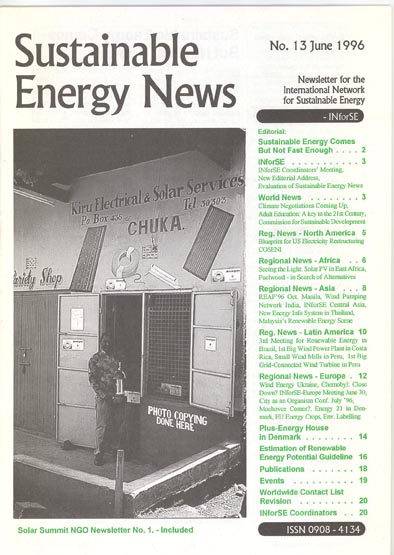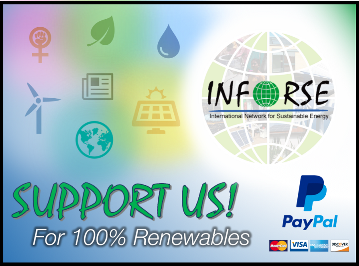|
|
|
|
|
|
|
|
|
|
|
|
|
|
|
|
|
|
|
|
|
| Follow Us: |
| Blueprint for US Electricity Restructuring | |
|
Initially, restructuring the electric-power industry so that competition could replace monopoly was considered a positive development for both the environment and consumers. Concern has grown recently that competitive pressures could result in utilities' abandoning the pursuit of energy efficiency and renewable energy to cut costs. These fears seem to be justified as utilities throughout the U.S. cut demand-side management (DSM) program budgets, citing competitive pressures. Despite the obvious advantages of renewable-energy technologies, utilities have remained averse to introduce these technologies. A recent survey by Greenpeace of the nation's utilities found that renewable energy sources account for only 5 percent of 220,000 megawatts of generating capacity that is new or planned for the period between 1990 and 2014. At the same time, it has become clear that the U.S. Climate Change Action Plan, which relies largely on voluntary action from the country's utilities, will fail to meet its commitment to stabilize U.S. CO2 emissions during the period 1990-2000. In this uncertain phase, before comprehensive restructuring legislation is passed by Congress (scheduled to take place in 1997), utilities are working to increase their market power by merging to gain control of ever larger markets, by investing in risky ventures at home and abroad and by acquiring and being acquired by manufacturers of generating plants and fuels. The consequent loss of political and economic accountability results in minimal consumer choice and control, and increasing environmental degradation. Environmental Action seeks to ensure that low-income households are not disproportionately burdened by rising energy costs, that renewable-energy growth is nurtured, and that programs for energy efficiency are not abandoned. Together with Public Citizen, the Union of Concerned Scientists, and the U.S. Public Interest Research Group, we are developing a set of principles for utility restructuring legislation that local, state, and national groups can use as a guideline in lobbying for consumer and environmental safeguards. The principles of the blueprint are: - The transition to a competitive market must offer significant savings to all consumers, including low-income consumers. - Utility restructuring should not result in a widening gap between the respective rates paid by small and large consumers of electricity. - Relieving utilities of any liability for damage and losses caused by their decisions would penalize efficient utilities and consumers. No less than 50% of damages and losses should be recovered from shareholders and no more than 50% from ratepayers. - Utilities should separate their generation, transmission, and distribution assets into distinct and unaffiliated corporate entities. - An independent energy agency should be created to ensure independent oversight and administration of energy efficiency, low-income, and R&D programs. This agency would coordinate and adopt measures to ensure that all money collected for this purpose from the electricity system was disbursed through competitive bidding, effectively spent, and directed to high-priority programs that serve the public interest. - The aggressive pursuit of energy efficiency must not be compromised by the switch to competitive electricity markets. Funds for this should be collected through a system that cannot be bypassed, then disbursed by the Independent Energy Agency. In addition, state-guaranteed access to below-market loans for efficiency improvements would help consumers. - Funding for energy assistance for low-income consumers must be adequately supported. - Consumers must be protected against any unfair business practices. There must be full disclosure of each company's resource port folio and environmental impacts. - States must ensure that adequate support is available to develop and deploy new technologies that increase transmission and distribution efficiency, allow distributed generation, and reduce or prevent pollution, e.g., by a system benefits charge. - The growth of renewable-energy generation must be a priority for any restructured system. A renewables portfolio standard, applied to all retail suppliers of electricity, should be used to increase resource diversity from current levels. - Competition must produce improvements in environmental quality. States should consider a range of mechanisms to achieve pollution reductions, including pollution charges. |
|

| |
| Published in Sustainable Energy News |
|
|
Go back to main page of ISSUE #13 Sustainable Energy News (16 pages) (1996-06-30) 
|
|
| Contact | |
| |
INFORSE Secretariat Klosterport 4F, 1. floor DK-8000 Aarhus C Denmark Phone: +45 86 22 70 00 Twitter: INFORSE_org Facebook: INFORSE Web: inforse.org E-mail: ove@inforse.org |
